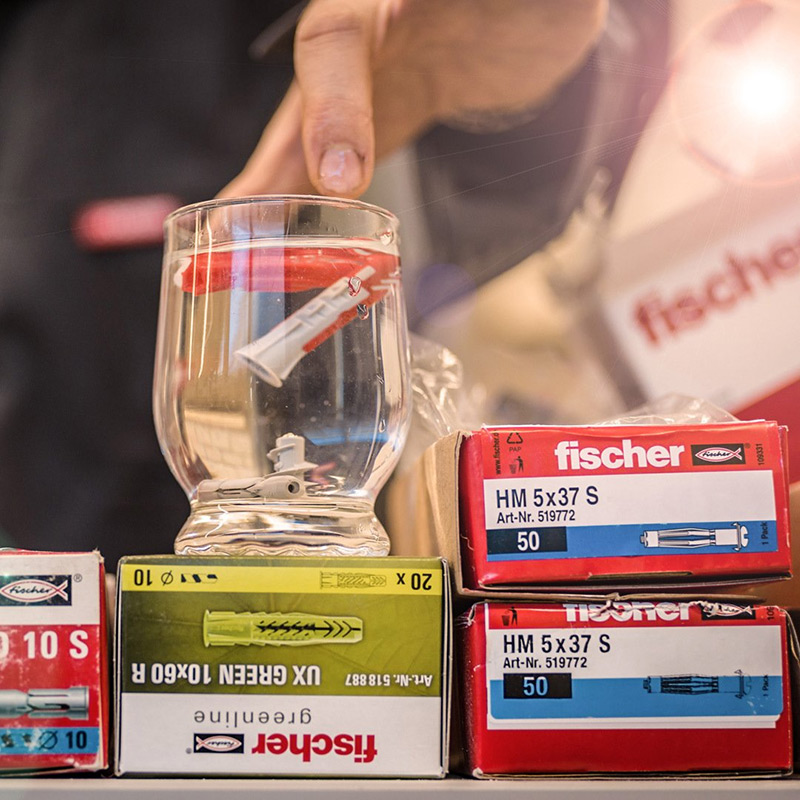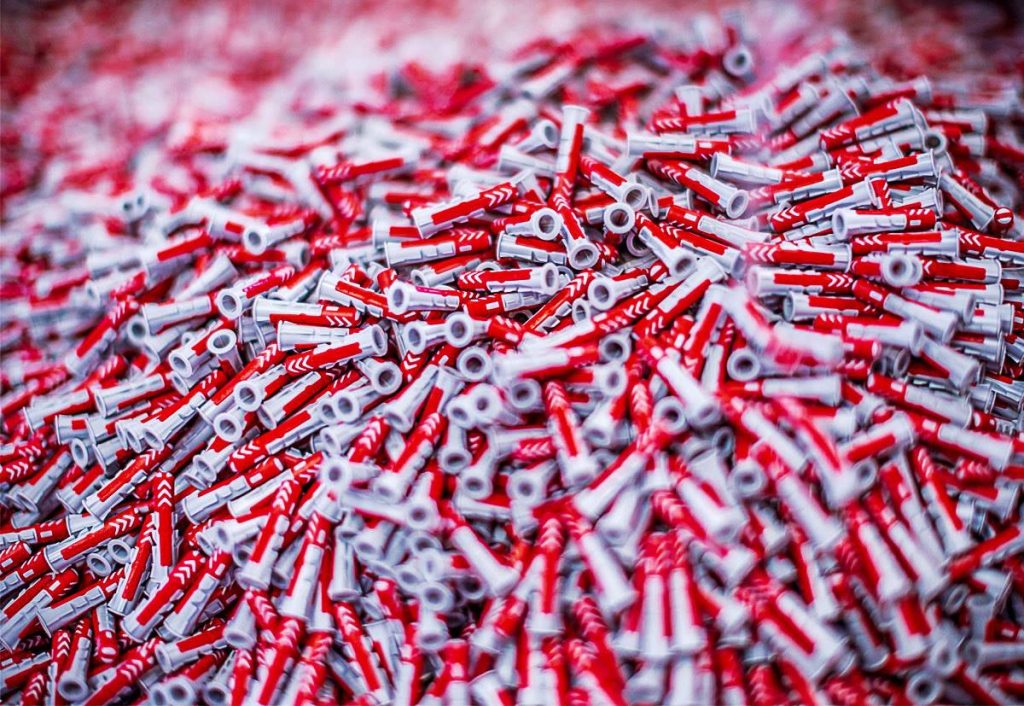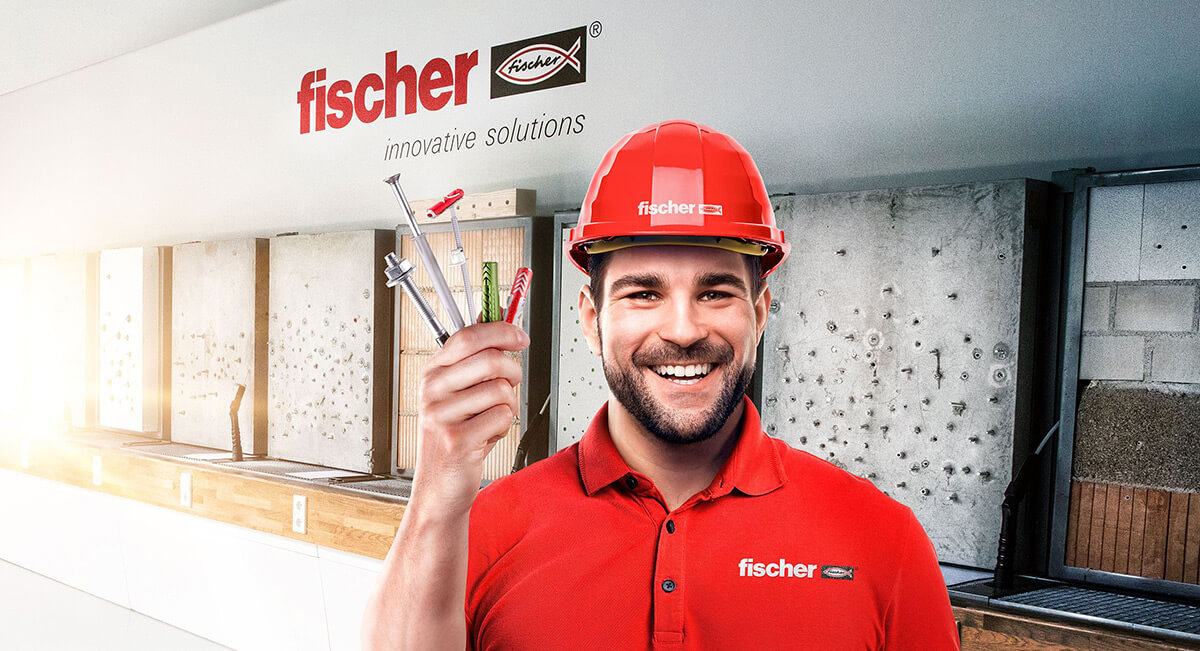Plastic Versus Nylon Wall Plugs
Plastic Versus Nylon Wall Plugs is a question everyone should ask themselves before purchasing wall plugs. The most widely used method of securing an item to a brick, concrete, hollow block, and other structural building materials is by a plug and a screw inserted into the plug and tightened to expand in the base material. As is the case with different building materials requiring different fixing technologies, it is important to note that while a wall plug may look the same, no matter what brand you use, their composition and functionality differ. There are numerous different types of plugs on the market that are used for hundreds of different applications, but the major distinction is plastic versus nylon plugs wall plugs. This article details the key differences between these two materials and highlights why nylon should be your fixing of choice when buying your wall plugs.
Characteristics – Plastic Versus Nylon Wall Plugs
Nylon is a form of plastic of the polyamide family which is the generic designation for a family of synthetic polymers, based on aliphatic or semi-aromatic polyamides. Nylon is therefore an extremely strong material that meets high quality and safety requirements and does not deteriorate over time. Whereas materials such as polyethylene, polypropylene, polystyrene, and dozens of others, known as plastic, are also used to manufacture plugs. All of the aforementioned products have one basic difference – they have a lower density than water, meaning they will float on water, whereas nylon will sink when immersed in water.

What does material density have to do with fixing holding strength?
Polyamide or nylon as it is more commonly known is far denser than the plastics mentioned above and is, therefore, the only suitable material for fixings that will remain strong and sustainable fixings over an extended period of time. Take for example a generic plastic bag, over time when left out in the elements, exposed to sunlight and weather conditions such as rain and wind the plastic bag deteriorates and breaks down. Nylon does not deteriorate over time and when exposed to the elements and offers, on average, a 50% higher holding force than their plastic counterparts.
The high mechanical strength and stiffness of the polyamide (nylon) material allow plugs to handle high loads due to their expansion force and reduced friction. In addition, nylon can withstand far more heat than plastic; these plugs will not deform from the heat produced by friction when screws are driven into a wall. Polyamide fixing elements are resistant to various weathering conditions – natural aging, rust, rot, and various chemical substances.
Identify A High-Quality Anchor
Benefits Of Using Nylon Fixings
– Sustained high holding force
Nylon, with its high mechanical toughness and rigidity, provides expansion strength and friction toughness to give fixings a high holding strength in construction materials, continually.
– Nylon has a low screw in torque and a high stripping torque
When screwing in the screw, the nylon plug moulds itself to the screw thread, ensuring a solid hold and providing clear feedback to the user, that the screw is tightening properly.
– Thermal stability
Nylon remains viscoplastic at low temperatures and dimensionally stable at higher temperatures, from – 40° to + 80°.
– Dense & rigid material
Nylon maintains all the expansion force that originally occurred with the installation of the screw, without lessening the expansion pressure.
– Excellent chemical resistance
Nylon is resistant to ultraviolet (UV) ageing, rust and corrosion.
– Good damping capacity
Nylon reduces vibrations and provides sound insulation and thereby reduces the amount of structure born noise.

Polyamide, the major component of nylon, absorbs humidity from its surroundings in its molecular structure which contributes to its high impact strength and abrasion resistance. Opting to use a nylon wall plug greatly reduces the chance of anchor failure thanks to its long-term stability and the characteristics as mentioned above. This means the chance of your fixing failing is greatly reduced when compared to a plastic-based wall plug that deteriorates.
Picking a high-quality nylon fixing ensures a solid and secure fixing that will stand the test of time. fischer prides itself on ensuring a secure fixing and that is why all fischer plugs including General, Frame, Nail-in and Specialised Fixings are made from 100% virgin nylon. Choosing a high-quality nylon fixing solution will save you money, frustration, and rework time in the long run and give you peace of mind that your installation will remain fixed.









